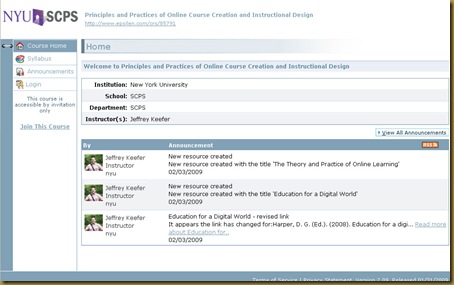Interesting findings:
- more work with less compensation and respect for faculty
- worse learning outcomes for learners
Honestly, the results do not surprise me. There is a lot more work with online and distance education, and there is not compensation for all these additional efforts. It is a great challenge to engage and maintain the attention of people without the benefit of body language to assess attention, mood, and questions. Fostering a sense of community and shared learning(?!); do not even get me started on these hurdles . . .
Perhaps this demonstrates how those of us who work in distance education are still considered pioneers (martyrs?) for a changing learning modality? Perhaps institutions embraced distance learning too quickly without considering the additional financial and personnel support needed (beyond the pricy systems themselves)? Perhaps these are the normal growing pains involved in every major shift in teaching and learning?
Let’s face it, changing any aspect of the status quo (and higher education changes very very very very slowly) is a challenge, especially when there becomes more of a flattening of authority in education (the teacher no longer is in front, much of human knowledge is a few keystrokes away, etc.). Whatever the case, I am glad I teach and learn online, as the many benefits of it changes the very dynamics of adult learning itself.
